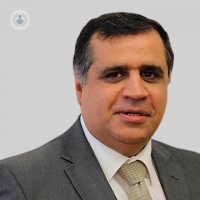A comprehensive overview of keyhole surgery procedures for varicose veins
Written in association with:What are the most common keyhole procedures for varicose veins?
Common keyhole procedures which are used for varicose veins include endovenous laser ablation (EVLA), radiofrequency ablation (RFA) and foam sclerotherapy. The purpose of each of these procedures is to shut off the diseased veins and thus redirect blood flow to healthy veins.

When are they indicated and how are they performed?
Surgery for varicose veins may be indicated If you are experience symptoms such as leg pain, aching, swelling or skin changes. Additionally, it may be required if your varicose veins are posing potential threats to your health, namely, skin ulcers or blood clots.
During endovenous laser ablation (EVLA) and radiofrequency ablation (RFA), a catheter is threaded into the vein by using heat energy, which helps to seal off the vein.
The foam sclerotherapy process consists of injecting a foam substance into the vein. This results in the collapse of the vein, causing the seal to shut completely.
What are the benefits of keyhole surgery for varicose veins compared to other treatment options?
There are multiple advantages of keyhole surgery compared to other types of treatment for varicose veins. These benefits are as follows:
- minimal scarring
- a reduced recovery time
- a lower risk of complications
- a more precise and effective treatment
- a procedure without the need for general anaesthesia
What precautions should patients take after surgery?
It is important to take care of yourself after keyhole surgery.
After the procedure, it is recommended that you wear compression stockings and ensure that your wounds are cleaned and dressed correctly until they are healed.
Additionally, you should avoid taking part in strenuous exercise and prolonged standing or sitting for around two weeks following surgery.
Can you walk after varicose vein surgery?
Yes, you can walk following varicose vein surgery. In fact, doctors recommend walking after surgery in order to encourage blood flow and promote the healing process, though, as mentioned above, you should avoid heavy lifting and strenuous exercise throughout the initial period of recovery.
How often and in which instances are repeating surgery recommended?
Repeat surgery may be required when varicose veins recur. It is recommended that you monitor the status of your veins. If they recur, this indicates that surgery may be repeated.
Is keyhole surgery for varicose veins the most effective treatment in the long term?
Keyhole surgery for varicose veins is an extremely effective short term treatment option.
The recurrence rate of varicose veins following endovenous ablation (EVLA) is low, with a minimal complication rate. However, long term studies about varicose vein keyhole surgery are limited and thus require further research is required in order to establish its long term effectiveness.
If you are considering keyhole surgery for varicose veins and would like to book an appointment with Mr Zeynali, you can do so through his Top Doctors profile today.


